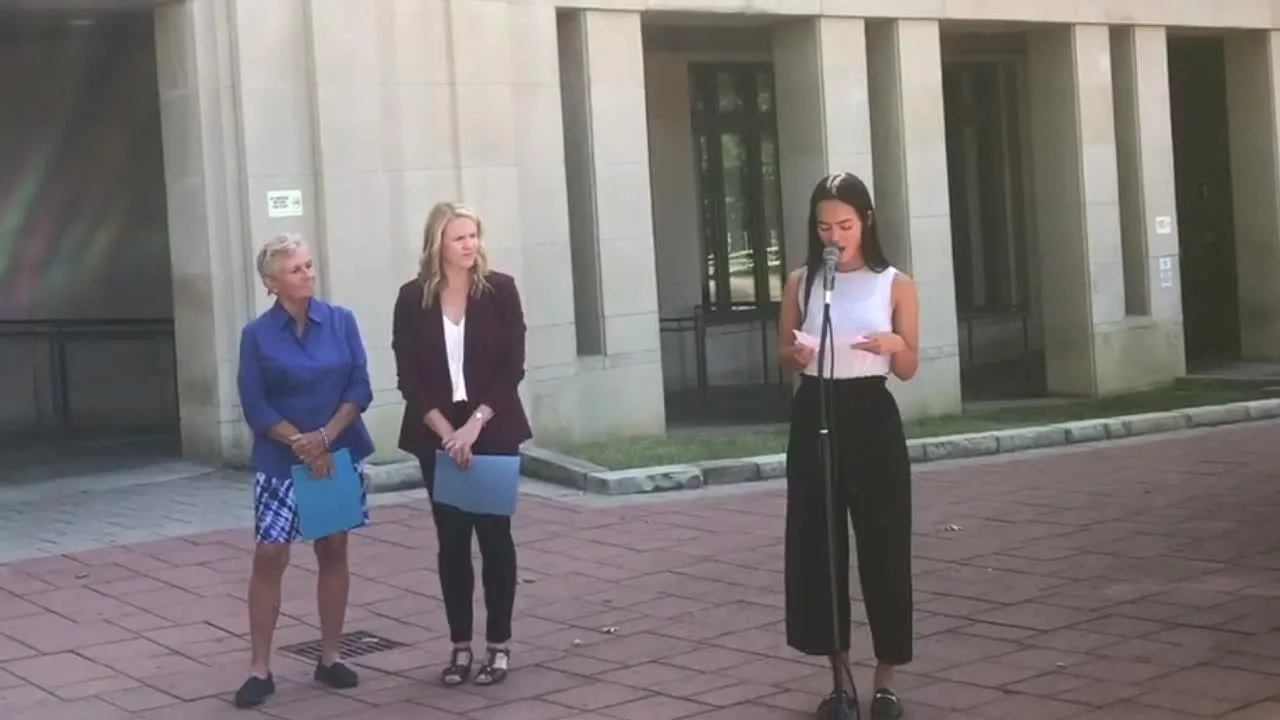
- Six Stephen F. Austin State University athletes filed a lawsuit against the school alleging Title IX discrimination after SFA announced it was axing womens bowling, beach volleyball and golf.
- A 2019 lawsuit filed by former UK students alleging the school violated Title IX by not providing equal opportunities for women to participate in sports is in the Sixth Circuit Court of Appeals.
- SFA used the same argument UK is using in its appeal and won. While a case decided in Texas doesn't have any direct impact on a case in the Sixth Circuit, UK could use the ruling to help its case.
A ruling made in the Eastern District of Texas could have an impact on a yearslong Title IX lawsuit against the University of Kentucky.
Six Stephen F. Austin State University athletes from the womens bowling and beach volleyball teams filed a class-action lawsuit against their school this summer alleging Title IX discrimination after the university announced it would cut those two programs and mens and womens golf. The decision was based on sustained departmental budget deficits and the anticipated financial impact of upcoming revenue-sharing requirements with Division I athletes, SFA athletics said in a statement. The plaintiffs sought to keep the school from axing these programs.
SFA argued that the plaintiffs' case was based on a policy interpretation of Title IX handed down by the Department of Education in 1979, better known as the three-part test, rather than the statute itself. Defendant lawyers urged the court to disregard the policy interpretation but also stressed the school was in compliance with Title IX either way. This is the same argument the University of Kentucky is using in the Sixth Circuit Court of Appeals against former students Ala Hassan and Lisa Niblock.
Judge Michael J. Truncale issued a written ruling Friday evening in favor of the plaintiffs. SFA has been ordered to reinstate all three women's teams. Truncale affirmed that the Loper Bright case cannot be applied to Title IX in what plaintiff attorney John Clune called an "incredibly important" win for gender equity in sports.
A case decided in the Eastern District of Texas doesn't have any direct impact on a case in the Sixth Circuit. But Iowa-based attorney Lori Bullock could take Truncale's ruling and file it as non-binding supplemental authority for the Sixth Circuit to consider when ruling on Kentucky's cross appeal. A quick appeal of Truncale's decision to the Fifth Circuit is possible, Clune said, in which case either UK or Bullock could submit the SFA decision for the Sixth Circuit to consider.
In 2019, Hassan and Niblock filed a federal lawsuit alleging the school violated Title IX by not providing equal opportunities for women to participate in varsity sports. Last fall, U.S. District Judge Karen Caldwell ruled in the Eastern District of Kentucky that the university was not in violation of the gender-equity law. Bullock filed a notice of appeal to the Sixth U.S. Circuit Court of Appeals in February.
Under the Department of Educations three-part test, a school can be in compliance with the participation aspects of Title IX in any one of the following ways:
The number of male and female athletes is substantially proportionate to their respective enrollments; or
The institution has a history and continuing practice of expanding participation opportunities responsive to the developing interests and abilities of the underrepresented sex; or
The institution is fully and effectively accommodating the interests and abilities of the underrepresented sex.
UK's legal counsel tried multiple times during the lower court proceedings to have the three-part test thrown out. Lawyers most recently cited a Supreme Court ruling from June between Loper Bright Enterprises and Raimondo, which they also cited in an April briefing. The decision made in favor of Loper Bright overturned a 40-year precedent known as the Chevron doctrine directing courts to defer to government agency interpretations of "ambiguous" laws.
However, Truncale ruled that Loper Bright applies to an agency's interpretation of statute, not its own regulation. He also ruled that Loper Bright does not overturn previous case law that previously interpreted policy. Thus, Loper Bright does not apply to Title IX's 1979 interpretation.
"It's a hard ask for the schools to make the finding that SFA was trying to make," Clune told USA TODAY. "The case law, it seems reasonably clear to us, but you know, you never know what a Court of Appeals is going to do. We're really happy about the ruling, but we're not surprised by the ruling. If you follow the law, this is what the outcome should be."
Reach college sports enterprise reporter Payton Titus at [email protected], and follow her on X @petitus25.




